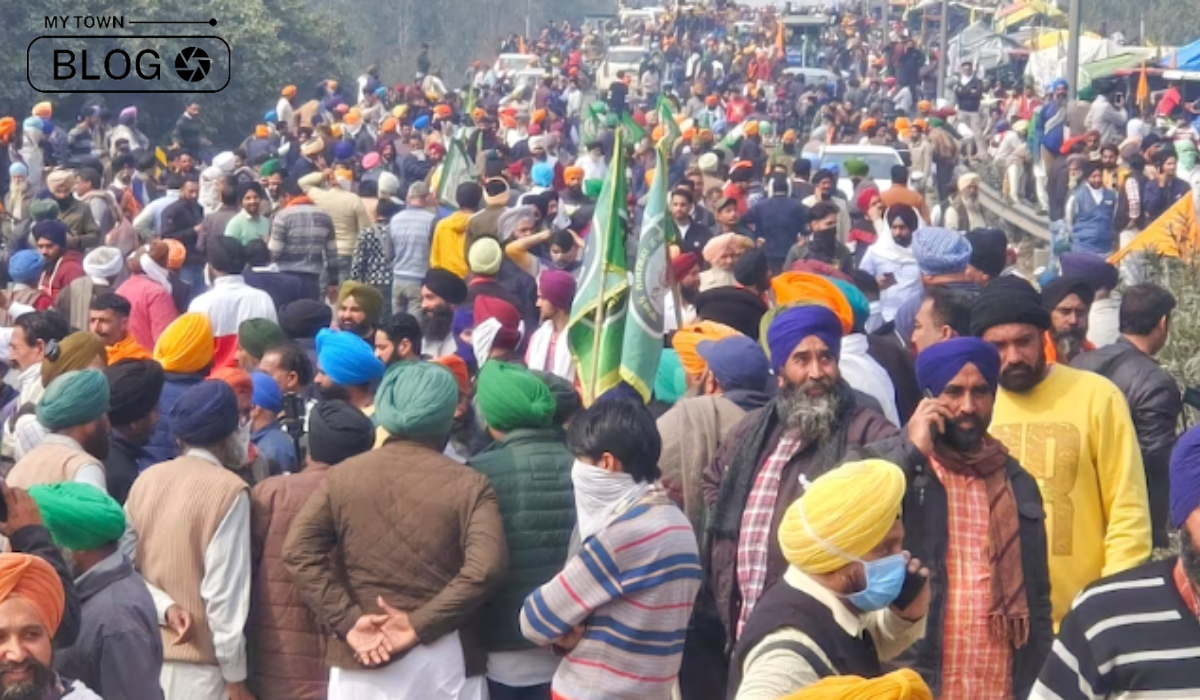The core concern was that transferring farmer-trader dispute resolution from courts to SDMs could bias outcomes in favor of corporations. While some farmer unions backed the laws, others remained staunchly opposed. The Supreme Court intervened, staying the implementation of the farm laws in January 2021, a move welcomed by farmer leaders. Several states passed resolutions against the laws, with some introducing counter-legislation, albeit facing obstacles in obtaining gubernatorial approval. Accusations of foreign influence and extremist infiltration arose during the Punjab Farmers Protest.
On Republic Day, farmers held a tractor rally in Delhi, resulting in clashes with police and symbolic gestures at Red Fort. Eventually, in November 2021, the government repealed the laws. However, farmer unions continued to demand MSP guarantees and the implementation of agricultural reforms. Farmers continue fighting for rights, demanding MSP guarantees and the fulfillment of promises to double their incomes, persisting in struggles.
The impacts on the country:
Farmers, vital to the nation, often live in poverty, adding to India’s low per capita income despite their foundational role. Approximately 21.2% of Indians endure this reality. Modern agriculture has become less profitable, prompting many to seek alternative livelihoods, leading to the abandonment of cultivated land and a rise in wasteland, accounting for 68.85% of India’s total land area as of 2004.
This decline in agricultural productivity adversely affects the international economy, resulting in a shortage of agricultural resources and a deficit in foreign currency inflows, impacting India’s economic balance. Insufficient food grain production exacerbates food shortages, leading to food insecurity and high prices, particularly affecting the middle and lower-middle-class segments. This situation may necessitate food grain imports, posing a significant economic loss for the nation.
Also Read: Chandigarh Police Releases Traffic Advisory In Anticipation Of Punjab Farmers Protest
Food scarcity may trigger social unrest, including civil unrest, as a significant portion of the population may lack access to nutrition. Thus, addressing agricultural challenges is crucial to preventing future crises and maintaining stability in India.
Enhancement of This Situation:
Indian farmers face a significant challenge due to limited education, hindering their adoption of modern technologies and improving agricultural practices. It is the government’s responsibility to address this by enhancing educational opportunities for farmers’ children, considering their financial constraints. Embracing modern technology is crucial for farmers to remain competitive in today’s agricultural landscape, where scientific advancements are rapidly evolving.
The widespread use of outdated manual tools contributes to inefficiency and labor intensiveness in farming. Both farmers and the government must collaborate to transition towards modern agricultural practices and utilize innovative technologies. Positive initiatives, such as the rally organized by Maharashtrian farmers, have influenced state governments to provide financial support, like the farm loan granted by Maharashtra’s Chief Minister Devendra Fadnavis in 2017 and West Bengal’s Chief Minister Mamata Banerjee in 2018.
The Indian government has introduced various agricultural development projects, promising a brighter future for farmers. Promoting tech adoption and offering financial aid is crucial for enhancing agriculture and ensuring farmers’ well-being.
Conclusion:
Punjab Farmers Protest depicts a crucial battleground where Indian farmers often fall victim to predatory practices of unauthorized lenders, perpetuating a cycle of poverty. Their lack of awareness renders them susceptible to exploitation by traders and large landowners, trapping them in perpetual debt. Despite technological advancements, India’s unique challenges like fragmented land ownership hinder its implementation, with land divided among male heirs, limiting productivity.
Additionally, inadequate irrigation infrastructure renders scientifically modified seeds and fertilizers ineffective. Government intervention is crucial to address these issues, considering farmers’ pivotal role in the economy. Despite India’s growing GDP, many farmers struggle with low incomes, leading to tragic outcomes like suicide. It is imperative to enhance farmers’ conditions by providing the necessary resources and support.
Government and planning commission initiatives, like the radio program “Krishi Kathar Ashar,” educate farmers on agriculture techniques and strategies. Such initiatives can significantly benefit farmers by improving their knowledge and empowering them to enhance agricultural productivity.








